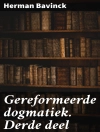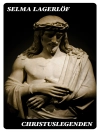In G. K. Chesterton’s ‘The Ball and the Cross, ‘ a whimsical yet profound exploration of faith and doubt unfolds through the tale of two contrasting protagonists: a militant atheist and a devout Christian. Set against the backdrop of a London that is as much a character in the story as its inhabitants, Chesterton employs his characteristic vibrant prose and philosophical dialogue to dissect the struggles between belief and skepticism. The novel’s literary style, marked by its satirical wit and allegorical depth, reflects the early 20th-century context of modernist thought and the challenges posed to religious orthodoxy. Chesterton, a prominent figure in the literary and philosophical landscape of his time, was a fervent defender of Christian values. His own journeys through skepticism to faith imbue the narrative with authenticity and urgency, revealing his concerns about a world teetering on the brink of moral relativism. This personal background, coupled with his keen observations of contemporary society, shapes the compelling questions at the heart of the novel. Readers who appreciate not only narrative adventure but also the rich intellectual exploration of conflicting ideologies will find ‘The Ball and the Cross’ both engaging and enlightening. It challenges the reader to consider the broader implications of faith and reason, making it a timeless read that resonates in today’s complex world.
लेखक के बारे में
G.K. Chesterton was an English writer, philosopher, lay theologian, and literary and art critic, born on May 29th, 1874, in Kensington, London. His body of work includes philosophy, ontology, poetry, plays, journalism, public lectures and debates, literary and art criticism, biographies, Christian apologetics, and fiction, including fantasy and detective fiction. Chesterton has been often referred to as the ‘prince of paradox’ for his ability to turn a phrase on its head and expose the underlying truths of a subject. ‘The Ball and the Cross’ (1909) is one of his earlier novels which exemplifies his style of juxtaposing serious intellectual debate with whimsical story-telling. It reflects Chesterton’s own Christian beliefs, intellectual rigor, and a great fondness for debating issues of faith and ethics. In this book, as in many of his works, Chesterton questions popular trends in philosophy and society, and advocates for a return to more traditional, faith-based, holistic modes of thinking and living. A prolific writer, Chesterton’s works, such as ‘Orthodoxy’ (1908) and ‘The Man Who Was Thursday’ (1908), continue to be read for both their literary flair and philosophical depth. He died on June 14, 1936, but remains an enduring figure in both literary circles and Christian apologetics.












